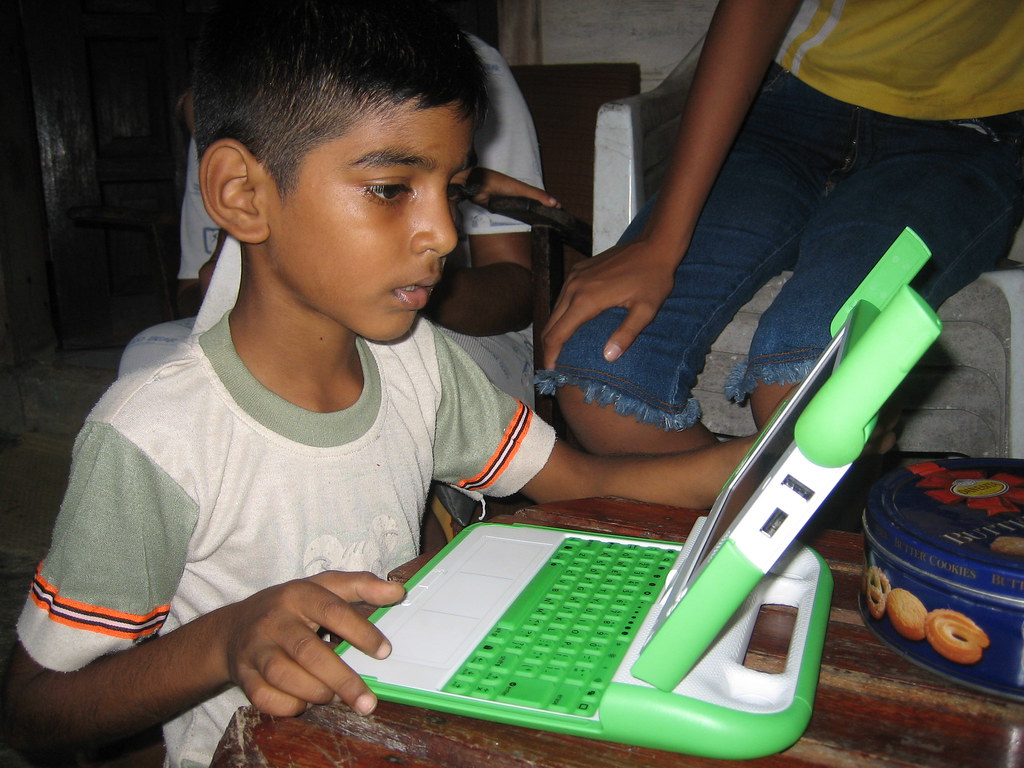I just came across a month-old interview of Negroponte in Big Think. Even if only half of his vision comes to fruition, how can we not be intrigued with the potential of OLPC?
Okay, as a teacher I would like to think that I inspire every single student who spend time in my room. Of course I don't. If Negroponte's reporting is accurate, in places where OLPC has been implemented, truancy drops to zero, dismissing the oft-repeated argument that children stop attending these schools in order to work or care for younger siblings. He says students go home and teach their parents how to read and write, empowering these youngsters as "agents of change"for their entire family. Rote learning bows to investigative problem-solving, parents actively engage with the school, and students are soon "learning about learning" through their computer work. Excited teachers report that children are educationally involved all day, that through the privacy of emails, students ask them far more searching questions then they would have asked if in front of their peers. The computer doesn't replace the book, he argues, but rather gives children access to millions of books instead. Millions.
Best yet, the children are passionate about their learning.
There is criticism. The laptops apparently aren't the $100 versions once promised. Poor nations might not have the resources to fund such a project. There are questions about what corporations might be benefiting from the initiative.
Still, there is so much potential. Children, passionate about learning. Challenging tasks. Cognition strengthened. Parents involved. Truancy radically reduced. Supportive teachers.
Or is this just another educational dream?
PHOTO CREDIT:
